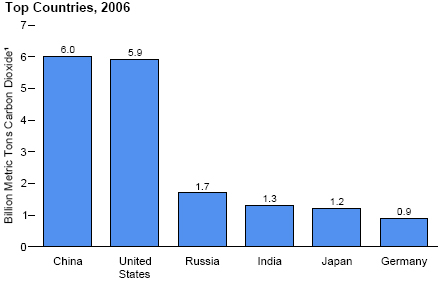A NYTimes article from last month discusses the recent talks between China and the USA to see eye to eye on greenhouse gas (GHG) emissions. The heart of the issue is that China will not commit to a specific GHG reduction quota and that the USA will not commit to enough reductions.
Together, China and the USA, release 40% of the world’s greenhouse gases. Wow, right? Over the past decade, there has been no real progress on the issue because of all the finger pointing.

The USA doesn’t want China to grow any stronger politically and economically. Remember that China is a “Communist” nation…kinda, and that the US isn’t really okay with that. The US wants to stay #1. Who doesn’t want to be on top? China certainly does. But China has a lot more development to do before its 750+ million peasants can live at the desired standard of living – a standard Americans have had for decades. Simply put: development requires energy, a lot of it. Traditional energy releases a lot of greenhouse gases – especially in China where coal-fired power plants are very inefficient. So China wants to develop and that’s going to release GHGs.
The Chinese and much of the developing world find it unfair that the USA will only commit to change if the rest of the world makes the same commitment. “Little progress can be made in addressing the global climate crisis, after all, unless common cause is found between rich countries, who created the problem in becoming so, and poorer countries, which understandably resent the idea that they ought not pursue a similar, CO2-belching path to vitality” Tom Zeller recently wrote.
The US doesn’t want to be surpassed by developing nations and therefore will not make a serious reduction commitment. The above NYTimes article cites current legislation of a 4% reduction from 1990 emissions by 2020 that currently being considered by the US government. The rest of the world was thinking the USA would reduce by more like 40% over that same time period. The current bill being condiered is junk. That’s not the American way.
For some reason people assume that reducing emissions means that we all start riding in the Flintstones’ foot-propelled car and that we’ll have to live in caves. It doesn’t. In fact, I’m confident we can increase our quality of living and still preserve the world that we absolutely depend on to live.

If the USA wants to compete with China in the long term, it should be dumping money into alternative energy and emissions reduction research. This would create millions of new domestic jobs, strengthen the current US economic situation, encourage a re-evaluation of the US primary, secondary, and post-secondary school systems, and help the US stay competitive with the countries that are funneling money into the future of technology: Japan, China, The United Arab Emirates (UAE), Germany, Spain, France. How can anyone argue with better education, more jobs, and a brighter future for both the US and the world?
Bottom Line: The US government should move forward with serious emissions mitigation steps with or without China’s commitment. The Chinese government will eventually be forced to reduce their emissions. When that happens, the Chinese can pay the US for the required technology. It’s a win-win: we commit to stop destroying the planet and continue to improve world-wide living standards. But, if the US government doesn’t start making a serious effort to reduce emissions at home, then we will not only destroy our planet but continue to suffer economically.
Edit: There’s a bit more here about US-China emissions policy and the “old trap: hiding behind each other so that neither [the US or China] would have to do anything difficult or expensive.” President of Mexico, Felipe Calderón says: ‘”The finger-pointing has gone on for more than a decade without humanity taking a single step forward in the fight against climate change”

